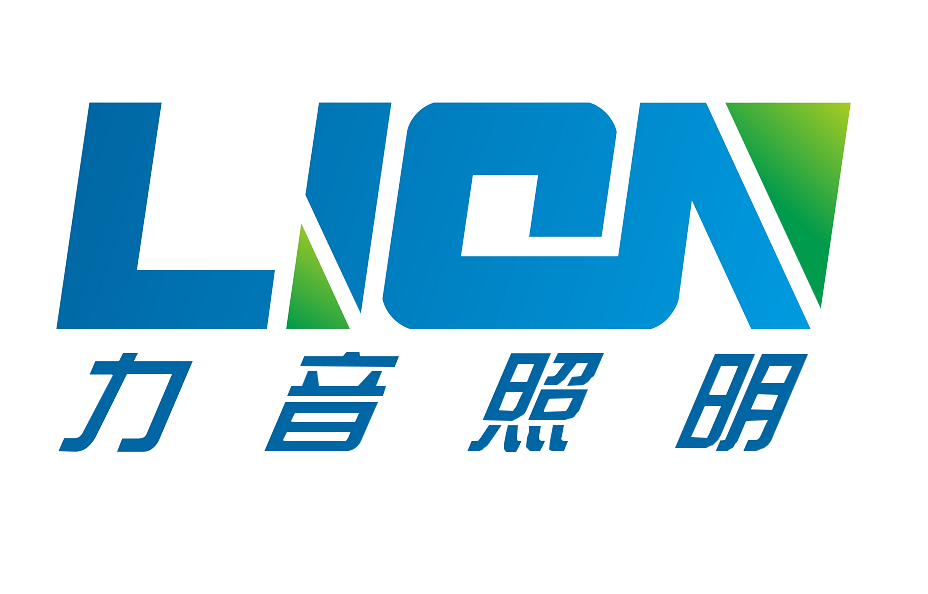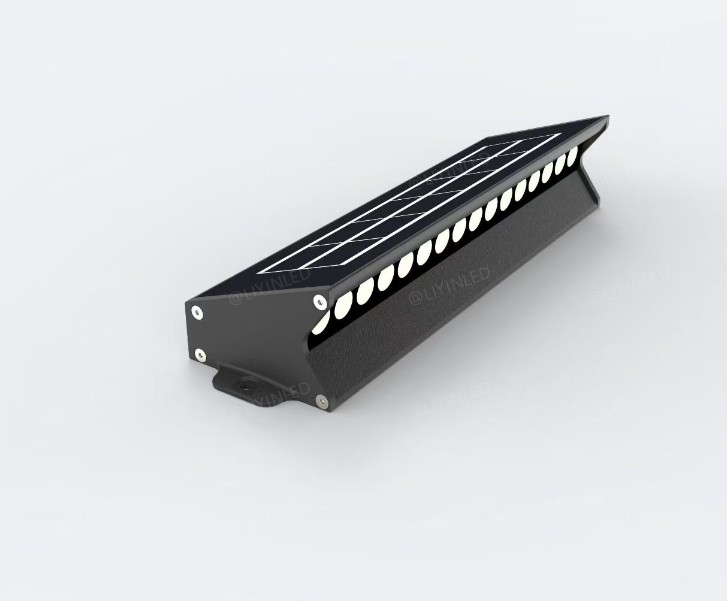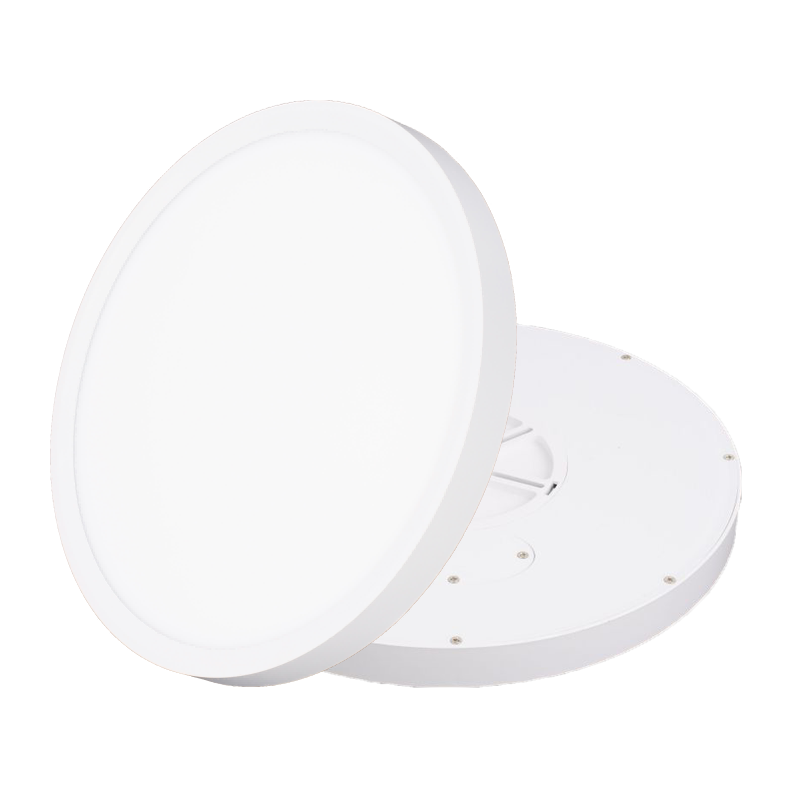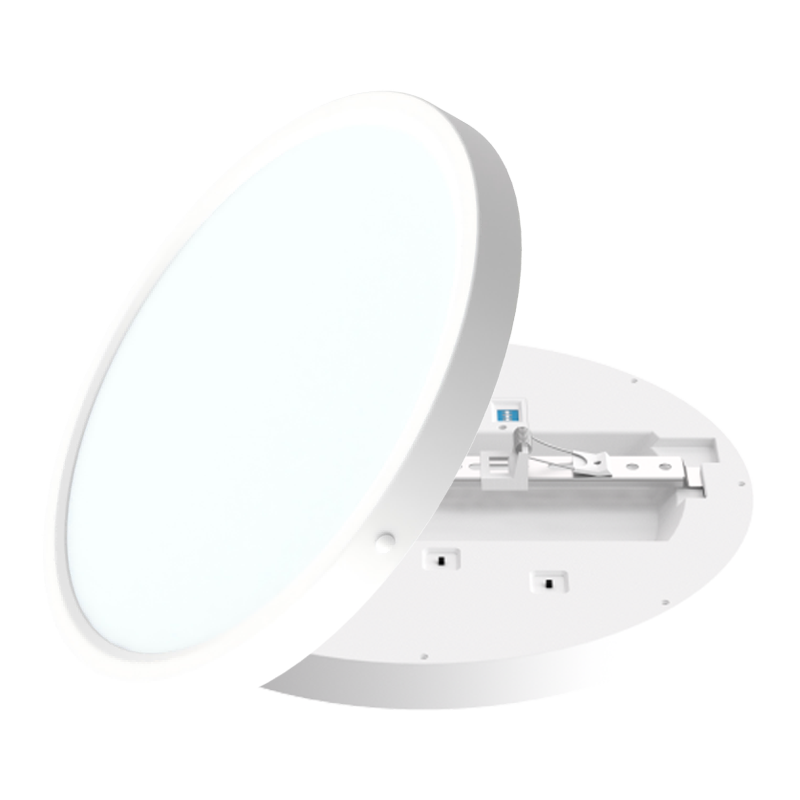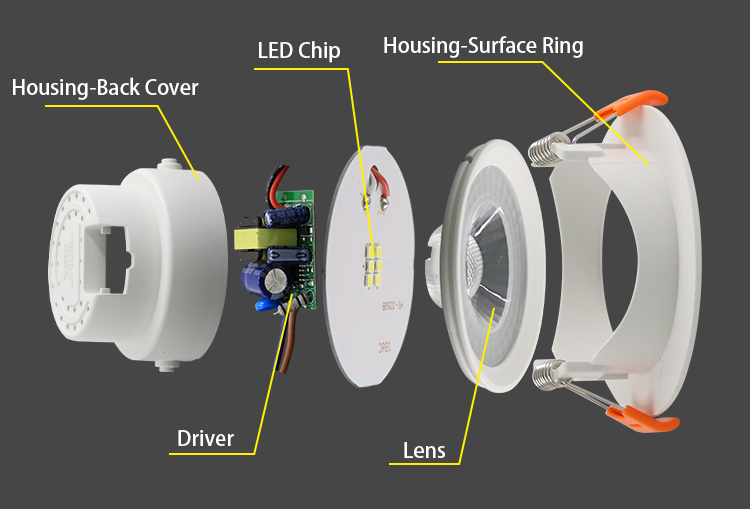Consumers often puzzle over why seemingly identical ABS downlights carry vastly different price tags. The truth lies in three hidden cost dimensions that determine product quality and compliance.
1. ABS Material Purity: The Core Cost Divider
Invisible quality differences explain 15-30% price variations.
Virgin ABS (Premium):
Sourced directly from petroleum refining.
Advantages:
✓ High stability (impact/fade resistance, superior gloss)
✓ Zero yellowing/cracking over time
➜ Raw material cost 15-30% higherRegrind ABS (Low-cost):
Reprocessed from industrial waste/scrap. Critical flaws:
✗ Brittleness (cracks under stress/temperature shocks)
✗ UV degradation (yellowing within months)
✗ Low heat resistance (deforms at ≥70°C operating temp)
✗ Color inconsistency (impurities cause patchy finish)
Warning: Common Low-cost Tactics:
⚠️ Blending 30-50% regrind into "virgin" batches
⚠️ Sourcing medical/e-waste scrap (RoHS-violating heavy metals)
2. Mold Investment & Precision (Decoding Structural Costs)
Manufacturing quality directly impacts lifespan and safety.
| High-investment Molds | Low-cost Molds |
|---|---|
| Hot runner systems (≈0 waste) | Cold runners (↑ scrap rate) |
| Multi-cavity sync injection | Single-cavity (↓ efficiency) |
| Mirror polishing (seamless finish) | Rough surfaces (visible burs) |
Mold Lifespan Economics:
Premium molds: H13 tool steel | 500,000+ cycles | $100,000+ cost | High per-unit cost
Budget molds: P20 steel | ≤100,000 cycles | $10,000s cost | ↑ Reject rates & post-processing
Quality Domino Effect:
➥ Manual trimming needed → Labor cost ↑
➥ Poor tolerances → Water seal failure (IP rating drop)
3. Compliance Cost: The $100,000+ Reality Check
Certifications separate legitimate products from counterfeits.
| Premium Products | Budget Alternatives |
|---|---|
| Full CE/LVD/EMC, UL, FCC certs | No certifications or fakes |
| $100,000+ testing investment | 100% customs seizure risk |
Key Takeaways:
Regrind ABS cuts costs but compromises durability/safety
Tooling precision dictates structural integrity
Certifications are non-negotiable for reliable products
Content Rationale:
Title Reinforcement - Repeatedly anchors discussion to ABS downlight cost drivers
Visual Hierarchy - Clear section breaks with divider lines and warning symbols (⚠️/➥)
Precise Terminology - Maintains technical terms: regrind, H13/P20 steel, IP rating, RoHS
Data Fidelity - Uses original figures:
Virgin ABS cost premium (15-30%)
Recycled blend ratios (30-50%)
Mold lifespans (500k+/≤100k cycles)
Certification cost (>$100k)
Risk Emphasis - Highlights consequences:
70°C deformation risk
100% customs seizure probability
Neutral Tone - Presents facts without brand comparisons
